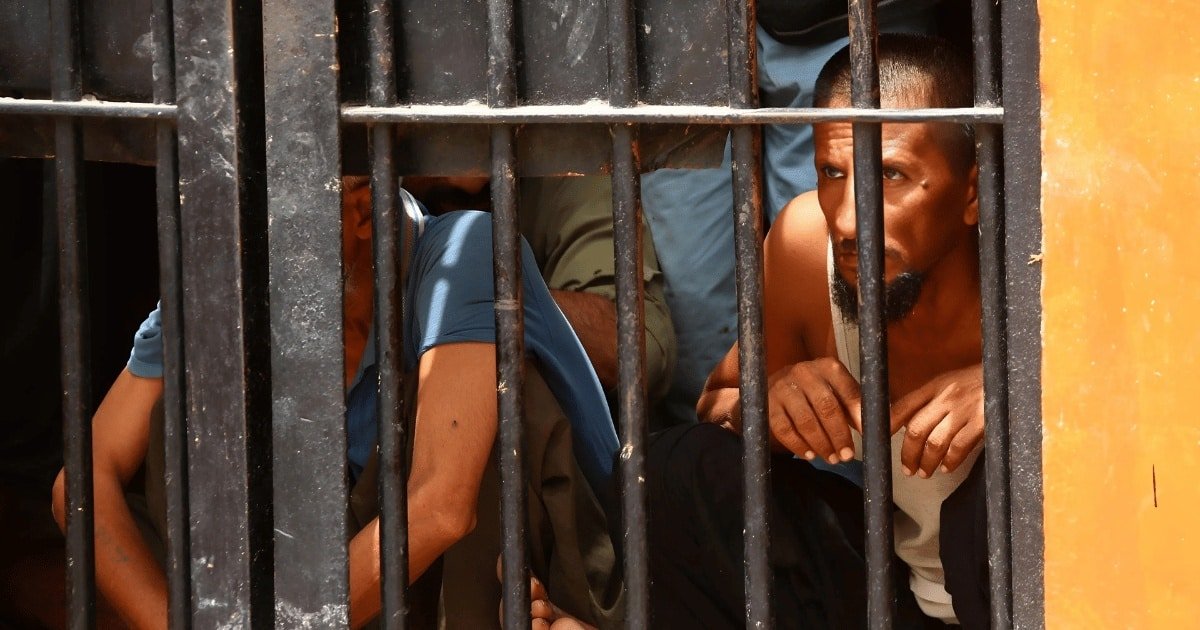Ironically, prisons play a significant role in the development of radicalism. Prisons can function as a breeding ground for extremist activities. These spaces can act as a means of transferring deviant behavior. Hence, prions can become schools of radicalism and criminality instead of punishing offenders. Radicalization refers to the readiness to challenge and disrupt social order. They become more willing to undertake radical acts that may be violent and on a large scale. They also become more willing to join extremist organizations. In Pakistan, criminal and ideologically driven law-breaking activities are interlinked. This article looks into the reasons why individuals become ideologically charged.
Opportunities for Criminal Radicalization in Pakistan
Pakistan’s prisons are overcrowded. There are not enough facilities or resources to improve the system either. Hence, Religious and political radicals are held together with criminals. Since the rise of terrorism in the 1990s, convicts were held together with prisoners awaiting trials. Oftentimes, they shared their cells with minors. Minors who are especially vulnerable for exposed to violent ideologies and internalizing them. Insufficient resources meant that there was a lack of control over the prisoners. This included a lack of psychologists as well as medical staff. According to the former head of Punjab police, ‘our government focuses more on providing vocational training to criminals than on psychological therapy’. This meant that there was no personnel available to curb the rise of extremist ideologies that were taking root.

Source: DAWN
Overcrowding and under-resourcing also contribute to radicalization. The bleak living conditions and systemic neglect create incentives for prisoners. Especially young detainees turn to radical ideologies to find a sense of meaning and identity. Even outside prisons, Pakistani youth often prioritize religious identity over national identity. As many as 75% of respondents in surveys identified as Muslim rather than Pakistani. Extremist groups exploit this mindset in prison settings for radicalization purposes. Religio-political organizations also establish links inside prisons. They attempt to connect religion with militancy. Inside prisons, these networks offer access, literature, and ideological linkage from sympathizers to active militants.
You May Like To Read: Rescued from Slavery: Pakistan’s Fight Against Human Trafficking
While direct internet access is limited behind bars, prisons are not wholly isolated. Radical content, such as messages smuggled in, visits from extremist-affiliated clerics, or coordinated messaging campaigns through outside connections. This keeps prisoners connected to online radical narratives. It also fuels caliphate fantasies and apocalyptic mobilization themes. Grievances in prisons also facilitate radicalization. Many inmates are awaiting trial for petty or civil infractions, yet they endure harsh conditions, delays, and sometimes torture. These grievances are exploited by radical actors promising meaning, justice, revenge, or transcendence. And since religious identity is often deeply internalized, extremist narratives resonate strongly within prison populations. This was further solidified through their belief in national and ethnic identity as being subordinate.
Case Studies of Jail Radicalizations
One of the starkest examples of prison-based militancy is the 2013 jailbreak. Terrorists from Fitna al-Khwarij (FAK) stormed the Central Jail in DI Khan and freed around 248 prisoners. This included dozens of high-profile militants. Attackers were armed and organized. They also freed ideological foot soldiers who later aided them in militant activity. This event was an example of the consequences of poor prison infrastructure and radical networking. Among those freed in the DI Khan jailbreak was Adnan Rasheed, a known ideological militant. He later corresponded with teenage education activist Malala Yousafzai, indicating how once-incarcerated militants stay active ideologically and sometimes publicly. This underscores how prison recruitment can have an enduring influence beyond release.

Source: DAWN
Another case is that of Aziz, who was an IBA university graduate. He underwent a transition from a respectable student into circles of violent extremism. This was due to the recruitment pipeline that overlaps with radical networks among educated student detainees. Although Aziz’s radicalization occurred outside prisons, it follows a similar dynamic. That is, educated inmates with grievances or ideological curiosities are vulnerable to recruitment networks inside jails.
Why It Matters
Inmates radicalized inside prisons carry an increased risk of terror attacks once freed. There is a high possibility that they may participate in coordinated prison attacks such as the D.I jailbreak. They are also likely to retaliate against institutions that incarcerated them. Prison radicalization also highlights systematic failures. Under-resourcing means that extremist individuals are often detained with young and impressionable youth. This creates fertile ground for recruitment. Public awareness of these issues is necessary. Transparency about prison conditions, clerical access, and ideological influence is still limited. Civil society and media reporting are crucial to increasing awareness and supporting reform efforts.
You May Like To Read: Female Suicide Terrorism in Pakistan: An Overview
Conclusion
Prison radicalization in Pakistan is a result of several factors. These include structural failures, ideological predispositions, and active recruitment networks. Delays in trials and a lack of proper oversight led to an increase in grievances. An emotional and physical vacuum is created that radical groups exploit. They offer these disillusioned prisoners a sense of purpose, identity, and belonging. Vulnerable detainees are more likely to join. The Dera Ismail jailbreak demonstrated how radical groups organize and recruit. These are not isolated incidents. Inmates often come into contact with extremist ideologues, either through fellow prisoners. Other prisoners with pre-existing dispositions become more committed to violent beliefs. Socio-political deprivations outside the prison also solidify the stance of inmates.
It is vital to look at the full picture to understand prison radicalization. Root causes such as legal delays and a lack of education need to be remedied. Psychological help and guidance should also be provided. Poor oversight and overcrowding issues should also be corrected. Only then will the influence of extremist networks inside prisons weaken.







